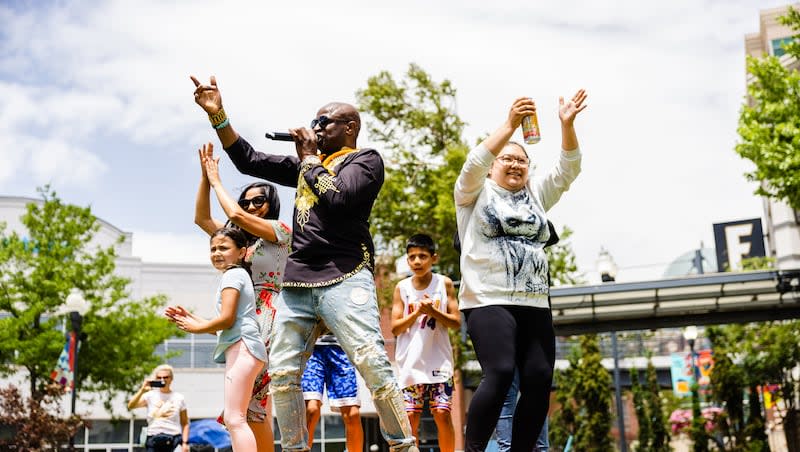How Juneteenth became a family holiday for us

In my weekday Utah Policy newsletter, I try to always include a National Day of note. National Bacon Day. National Sock Day (shoutout to Rep. John Curtis). National Spaghetti Day. You get the idea. On June 19, the newsletter shoutout will be for Juneteenth.
But Juneteenth isn’t just another “made-up holiday.” It marks an important (and sad) moment when all slaves were finally freed (at least on paper). Texas was a hold out for nearly two and a half years after the Emancipation Proclamation and two months after the end of the Civil War. The emancipating of a quarter-million slaves in Texas had to be enforced by some 2000 Union troops arriving in Galveston on June 19, 1865.
Sometimes change is hard. Just because troops arrived didn’t mean that slaves were actually free. Henry Louis Gates Jr., wrote that “even in Galveston city, the ex-Confederate mayor flouted the Army by forcing the freed people back to work.”
Our family celebrates Juneteenth now, with stories about why we have the holiday observance and, of course, with food. That hasn’t always been the case.
One of my older children has asked me why we now observe the holiday when we didn’t used to. Easy answer. I didn’t know about it. I never learned about the reasons behind Juneteenth when I was in school. Neither did my husband, and neither did my older children as they moved through the Utah school system. In fact, a Gallup poll in 2021 found that 68% of white American adults knew “little” or “nothing” about Juneteenth, while 96% of Black American adults knew at least a little.
Now we know, and so we mark that day every year. As Maya Angelou said: “When you know better, do better.”
When we first heard about Juneteenth and realized it was an important day we should observe, we knew we needed to celebrate with food. We went looking for recipes online. We found some that have been big hits and some that only my husband and I enjoy (peanut soup). Some of our favorites are Caribbean smothered chicken, rice and red beans, baked corn, red drink (alcohol-free) and red velvet cake.
You might notice a color theme with at least some of the food: the color red. It ”symbolizes the bloodshed and the profound sacrifices made by former enslaved Black Americans,” according to food historian Adrian E. Miller and CNN. Red is a royal color in African society, “adding depth to the folklore surrounding Juneteenth.”
Earlier this spring, PBS published a list of children’s books to help families learn about Juneteenth, from celebratory board books to an easy family cookbook to a story told through quilt-style art, there are numerous ways to learn together.
I asked one of my Black children how they felt when our family started celebrating Juneteenth. They said that it was never taught in school, but when we began observing the holiday, they thought it was “cool to learn more about it and embrace it.”
Now, they “think it’s a time to reflect and celebrate my Blackness. We look back on history but we are also celebrating Black joy and pride.”
If this is your first year celebrating Juneteenth, The Associated Press has published a handy-dandy guide for beginners. It includes information about whether the day is a solemn occasion or a party (yes), ideas on food, greetings and celebrating when you’re not Black.
Dr. Karida Brown, a sociology professor at Emory University who focuses on race in her research, said “there’s no reason to feel awkward about wanting to recognize Juneteenth just because you have no personal ties or you’re not Black. In fact, embrace it.”
“I would reframe that and challenge my non-Black folks who want to lean into Juneteenth and celebrate,” Brown said. “It absolutely is your history. It absolutely is a part of your experience. ... Isn’t this all of our history? The good, the bad, the ugly, the story of emancipation and freedom for your Black brothers and sisters under the Constitution of the law.”

